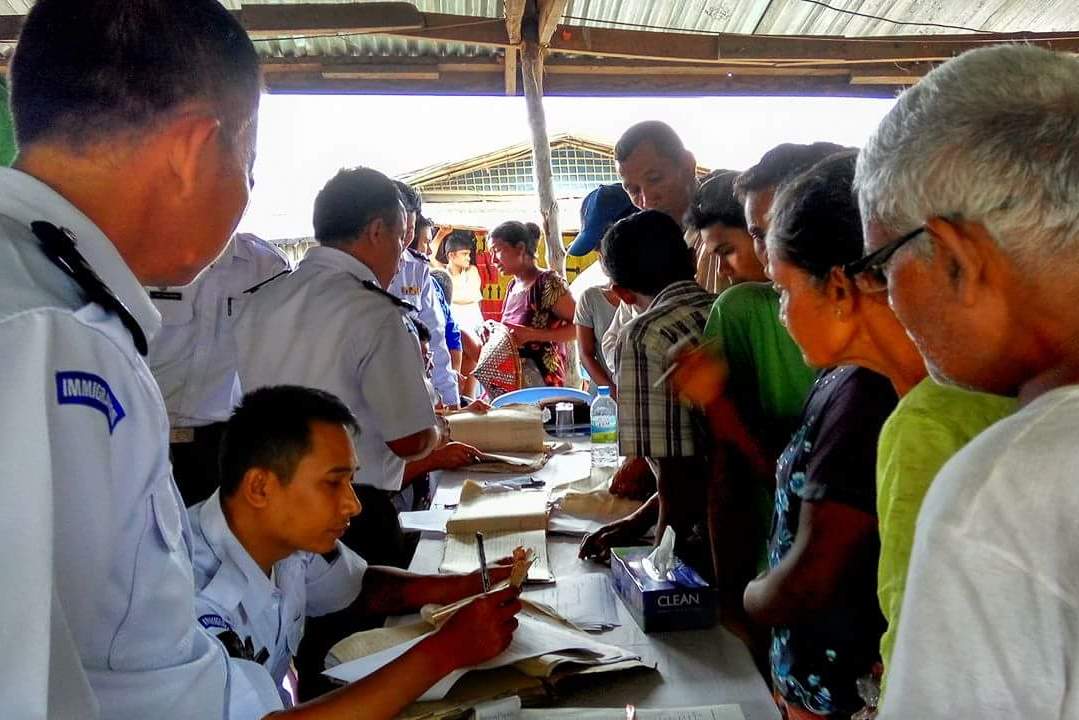Authorities in Arakan State have launched a citizenship verification programme in three predominantly Muslim townships.
The programme, initiated by the Immigration and National Identification Department, aims to determine the eligibility of several thousand residents in two displacement camps – in the coastal areas of Kyaukphyu and Myebon townships – and a village in Ponnakyun Township, some 20 kilometres north of state capital Sittwe. The programme began on 7 June.
The move follows the formation earlier this month of a committee for citizenship scrutiny in Arakan State by the National League for Democracy-led government, headed by Aung San Suu Kyi.
Ahead of scrutinising and assessing the residents’ citizenship, department officials have begun issuing blue ID cards – known as Identity Cards for National Verification or NVCs – to those who enroll in the programme at the two displacement camps.
Neither ethnicity nor religion is specified on the NVCs; however it is believed that almost the entire population of the three affected townships are Muslims from the community that self-identifies as Rohingyas, who are not recognised by Burma as indigenous people under the country’s 1982 Citizenship Law.
The Ministry of Information on Tuesday issued a statement, saying that the adjudication process had not yet commenced in the village in Ponnakyun as officials could not yet determine the origin of the residents.
[related]
“The work has not yet started in Ponnakyun as we do not have clear details about the ethnicity and religion of the residents there,” said Win Lwin, the director of the Arakan Immigration Department. “They are not IDPs [internally displaced persons] but residents of an isolated village. Their local elders could not tell us precisely where they hail from, perhaps due to a lack of education.”
He confirmed that participants in the programme would first be issued an NVC, before the each is scrutinised for eligibility under the 1982 Citizenship Law. He said the process would take about seven days.
The UN Refugee Agency UNHCR estimates that some 145,000 people were displaced from their homes during communal violence in 2012 when Rohingyas clashed with Arakanese Buddhists in many townships across the Arakan region, also known as Rakhine. The vast majority of the 120,000 IDPs who remain in displacement camps are Rohingyas, says the UNHCR.
Many in Burma consider the million-strong Rohingya community to be illegal immigrants from Bangladesh, and strongly oppose their integration into the country.
The Thein Sein government in 2014 introduced a citizenship programme for a small Rohingya community in Myebon Township, but it was largely unsuccessful as the majority of residents refused to comply with a condition that they must identify themselves as “Bengali” to qualify for citizenship.
“Under the 1982 Citizenship Law, a child born to parents who are both Burmese citizens may be eligible for citizenship,” said Win Lwin. “However, those born to naturalised citizens or guest citizens may not.”



